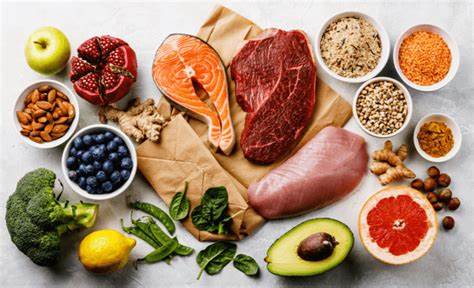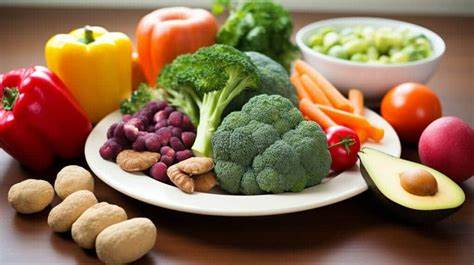Cancer is a life-altering disease, and while there is no one-size-fits-all solution, research has shown that diet plays a pivotal role in both preventing cancer and supporting cancer treatment. Proper nutrition is crucial in strengthening the body’s immune system, managing treatment side effects, and improving overall well-being during and after cancer therapy. By focusing on a diet rich in cancer-fighting nutrients, individuals can significantly lower their risk of developing cancer and enhance their recovery process if they are undergoing treatment. This article explores the best dietary choices to prevent cancer, provide support during treatment, and promote long-term health.
Importance of a Cancer-Fighting Diet
A well-balanced diet packed with antioxidants, vitamins, and minerals is essential in the fight against cancer. Studies show that the foods we eat can influence cancer development, growth, and even the body’s response to treatment. A diet high in fruits, vegetables, whole grains, lean proteins, and healthy fats can help repair DNA, combat oxidative stress, reduce inflammation, and maintain healthy cell function—all of which are critical in preventing cancer. Additionally, cancer treatments such as chemotherapy and radiation can deplete vital nutrients, making it even more important to eat nutrient-dense foods to support recovery and minimize side effects.
Key Components of a Cancer Prevention Diet
A diet designed to prevent cancer should include a variety of nutrient-dense, anti-inflammatory foods that provide protection against cell damage and inflammation—two primary contributors to cancer development. Here are some dietary components that have been shown to be particularly beneficial:

1. Antioxidant-Rich Foods
Antioxidants protect cells from oxidative stress, a condition where free radicals damage healthy cells, potentially leading to cancer. Fruits and vegetables, especially those rich in vitamin C, vitamin E, and beta-carotene, are excellent sources of antioxidants. Colorful produce, such as berries, citrus fruits, carrots, and spinach, provides a broad range of antioxidants. Cruciferous vegetables like broccoli, kale, cauliflower, and Brussels sprouts contain compounds that help detoxify the body and fight cancer-causing substances. Eating a variety of colorful fruits and vegetables ensures a robust intake of antioxidants, helping reduce cancer risk.
2. Fiber-Rich Foods
High-fiber foods are essential for maintaining a healthy digestive system and preventing colorectal cancer. Fiber helps to regulate bowel movements, lower cholesterol levels, and manage blood sugar, which can all contribute to cancer prevention. Whole grains such as brown rice, quinoa, barley, and oats, as well as legumes like beans and lentils, are excellent sources of fiber. These foods help maintain a healthy weight and prevent obesity, a known risk factor for several types of cancer, including breast, colon, and kidney cancers.
3. Healthy Fats
Incorporating healthy fats into the diet is essential for supporting the immune system and fighting inflammation. Omega-3 fatty acids, found in fatty fish like salmon, mackerel, and sardines, are known for their anti-inflammatory properties and may help reduce cancer risk. Plant-based sources of healthy fats, such as avocados, olive oil, and nuts, also provide vital nutrients for overall health. These fats not only support cell membrane integrity but also play a key role in hormone regulation, which is particularly important in preventing hormone-related cancers such as breast and prostate cancer.
4. Plant-Based Proteins
A plant-based diet rich in legumes, nuts, seeds, and soy products can provide adequate protein while being low in saturated fats, which are linked to an increased cancer risk. Soy foods, such as tofu and tempeh, contain phytoestrogens, which may help protect against hormone-related cancers like breast cancer. Additionally, these plant-based protein sources provide important vitamins and minerals, such as folate and magnesium, which support healthy cell division and DNA repair.
Diet During Cancer Treatment
Cancer treatments such as chemotherapy, radiation therapy, and surgery can take a toll on the body, leading to side effects like nausea, fatigue, loss of appetite, and weakened immunity. A nutrient-dense diet can help mitigate these effects and provide the body with the necessary fuel to heal and recover. While the specifics of cancer treatment diets vary depending on the type of cancer and the individual, the following guidelines can help manage side effects and support the body’s recovery:

1. Protein-Rich Foods for Healing
Protein is essential for tissue repair and maintaining muscle mass, especially during cancer treatment. Consuming adequate protein is crucial for healing and rebuilding the body’s cells after chemotherapy or surgery. Lean proteins such as chicken, turkey, eggs, and fish, along with plant-based proteins like beans, lentils, and tofu, should be included in the diet. If appetite loss is an issue, smoothies or protein shakes can be an easy way to consume protein without a heavy meal.
2. Hydrating Foods and Fluids
Staying hydrated is crucial during cancer treatment, as dehydration can worsen side effects like fatigue, constipation, and dry mouth. Drinking plenty of fluids such as water, herbal teas, and clear broths can help maintain hydration. Hydrating foods like cucumbers, watermelon, and oranges are also beneficial, as they provide fluids and important vitamins to support overall health. For individuals experiencing difficulty swallowing, pureed soups or smoothies can provide hydration and nutrition in a form that is easier to consume.
3. Managing Nausea and Appetite Loss
Cancer treatments like chemotherapy can cause nausea and a loss of appetite. Eating small, frequent meals throughout the day can help individuals maintain their nutritional intake. Ginger, either in tea or as part of a meal, has been shown to reduce nausea and can be an excellent addition to a cancer treatment diet. In cases of severe appetite loss, calorie-dense foods like avocados, nut butters, and smoothies can help ensure adequate calorie consumption without the need for large portions.
4. Limiting Processed Foods and Sugars
During cancer treatment, it’s especially important to avoid processed foods, refined sugars, and artificial additives. These types of foods can contribute to inflammation, weaken the immune system, and increase the risk of complications. Instead, focus on whole, nutrient-rich foods that provide essential vitamins and minerals to support recovery and reduce inflammation. Additionally, some studies have suggested that sugar can fuel cancer growth, so reducing sugar intake may help prevent the growth of cancer cells.
5. Supporting the Immune System
Cancer treatments can weaken the immune system, making it essential to focus on foods that support immune function. Vitamin C-rich foods like citrus fruits, strawberries, and bell peppers can help boost immunity and combat infections. Zinc-rich foods, such as nuts, seeds, and legumes, also play a role in supporting the immune system and promoting healing. Probiotics found in yogurt, kefir, and fermented foods can help maintain gut health and promote a balanced immune response.
Foods to Avoid During Cancer Treatment
While certain foods can enhance recovery and support cancer prevention, there are also foods that should be limited or avoided during cancer treatment. These include:

- Raw or Undercooked Meat and Seafood – These can increase the risk of infection, especially when the immune system is compromised during cancer treatment.
- Alcohol – Alcohol can interfere with cancer treatments, weaken the immune system, and increase the risk of complications.
- Caffeine – Excessive caffeine intake can interfere with sleep, which is vital for the body’s healing process during cancer treatment.
Conclusion
The best diet to prevent and support cancer treatment focuses on nutrient-dense, whole foods that promote a healthy immune system, reduce inflammation, and support the body’s ability to repair itself. A diet rich in fruits, vegetables, whole grains, lean proteins, and healthy fats can play a significant role in cancer prevention, while also supporting the body during cancer treatment. While every individual’s dietary needs may vary, adopting these healthy habits can greatly enhance overall well-being, help manage treatment side effects, and improve recovery. If you are undergoing cancer treatment or looking to reduce your risk of cancer, consulting with a registered dietitian or healthcare provider can help tailor a diet plan that meets your specific needs and goals.

Leave a Reply